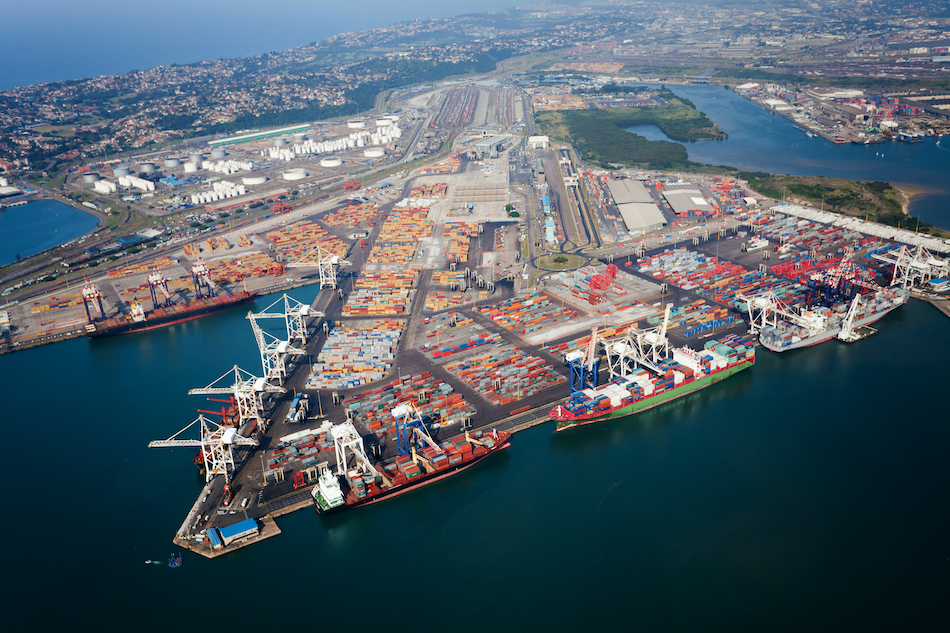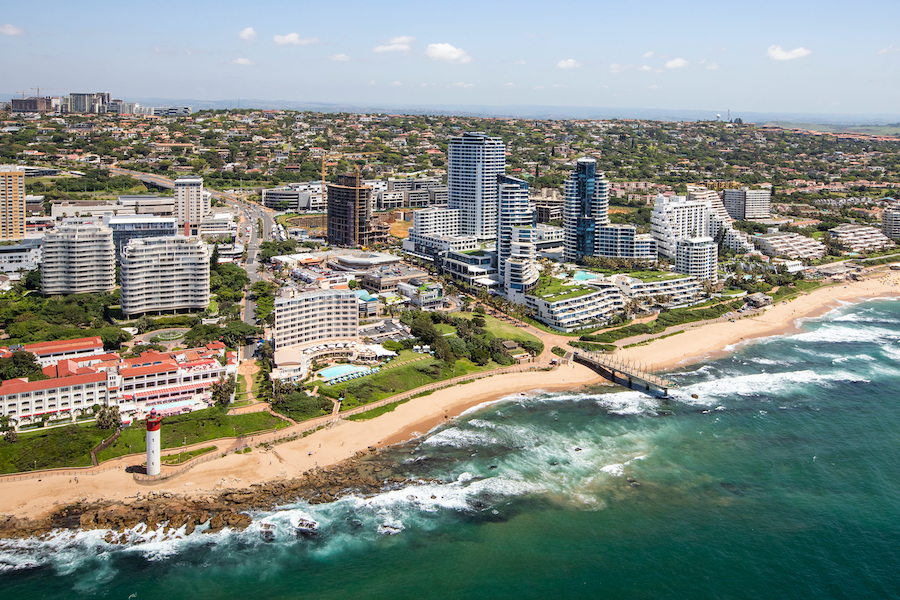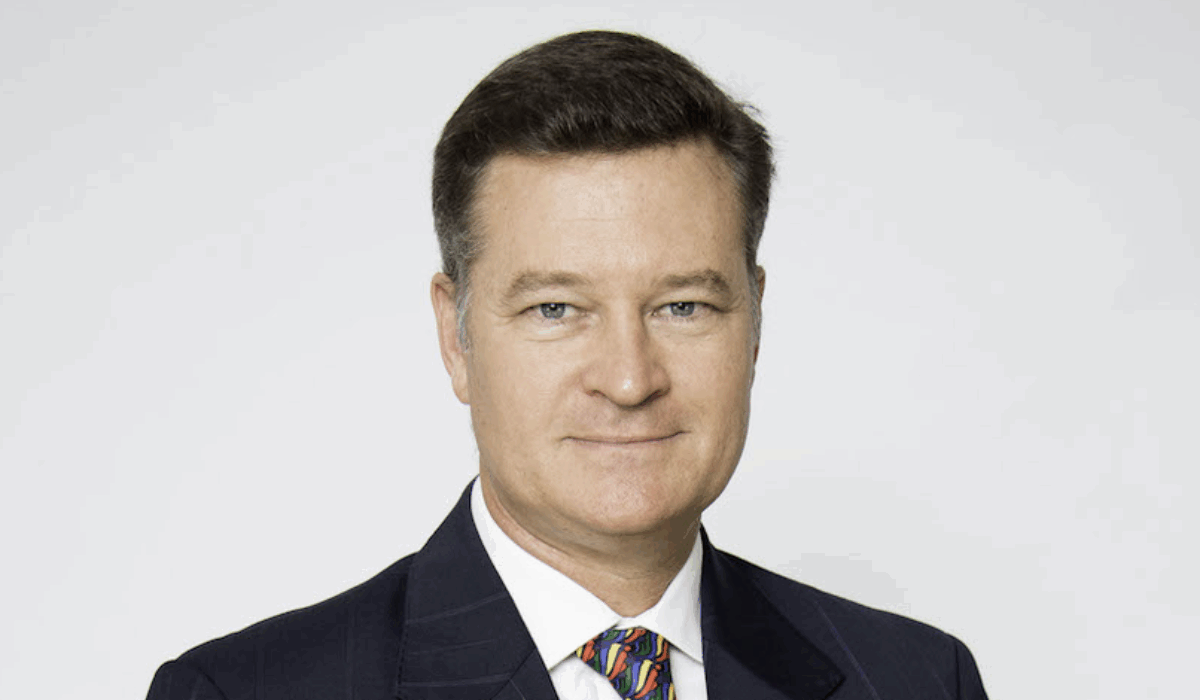New Politics and a Rich Diversity at the Heart of Durban’s Investment Appeal
CEO of Invest Durban, Russell Curtis has seen business confidence soar since the new Government of National Unity (GNU) assumed the reins of power in South Africa in 2024. The new political dawn has introduced an enhanced enabling environment in Durban, helping to usher in the present improved political reality.
Out with the old
The African National Congress (ANC) had ruled South Africa largely unopposed for decades. Frustratingly, for those keen to see the country’s economic potential fulfilled, this unchecked authority saw inefficiencies embedded, divisive policies implemented, and corruption became pervasive and endemic. Cumulatively, this acted to discourage much needed foreign direct investment.
Under the previous power holders’ long watch, South Africa became synonymous with load shedding and other bulk infrastructure challenges, including delays to the upgrading of the national logistics system.
In with the new
FDI is predicated to a degree on a herd mentality, whereby prospective investors require reassurance that others are either already invested, have committed to doing so, or are seriously considering it.
“Durban possesses an inherent economic advantage, thanks to its coastal metropolitan port city status”
With Durban’s new forward-thinking, outward-looking government, that has sought to create a business-friendly political climate, it is small wonder that FDI pledges are now rapidly increasing. As such, investors can be reassured they will neither be trailblazing risk-takers, nor outliers.
Durban’s rich tradition of diversity
Durban is famed for its diversity, credit for which must go to the city’s forefathers who set the tone for a mutually beneficial trade and investment relationship between local and international investor and partners.
2024 marks exactly 200 years since the joint founding of the Port of Durban via a mutual trade agreement reached between Zulu King Shaka and emissaries of the British royalty. Over two centuries, the Durban economy has become ever more diversified, with an enviable spread across primary, secondary and tertiary sectors.
Today’s Durban has a strong public-private partnership (PPP) focus, and the largest collection of formal registered public-private clusters of any metropolitan region in Africa. Automotive, textiles and clothing, chemicals, and maritime are just a few of the clusters included in that portfolio.
Other sectors have needed some impetus and a helping hand to gain traction and momentum. Tourism is one such example, having been laid low by COVID-19, which cut off its lifeblood overnight. This curtailed investment in new developments, saw many air routes to Durban halted, and others fail to materialize.
A leg-up
For tourism and other areas identified as needing a leg-up, multi-stakeholder mechanisms known as Presidential eThekwini Working Groups (PeWGs) have been set up to address critical service delivery, infrastructure, and socio-economic challenges within the eThekwini Metropolitan Municipality to better position the city as an investment hub.
Meanwhile, representatives from two national business bodies, Business Unity South Africa and Business Leadership South Africa have worked with the president and national ministers to address major areas of focus for investors: namely, energy, national logistics networks, national safety and security, and water and wastewater. In short, business provides money, human resources and project management pedigree necessary to realise improvements.
The impacts have been both swift and remarkable; and nowhere more so than on the energy front, with 2024 seeing the scourge of load shedding afflict the nation in only the first quarter of the year.
These PPPs did not exist previously, with siloed interests making for ad hoc incoherent strategizing. This fed through into insufficient trade and investment, job creation, and revenues – both for government and commerce.
Now, however, mutual information flows are improving and accelerating, and efforts have become synergized around a clearly defined set of KPIs. In terms of measurability regarding the efficacy of these efforts, the Durban Business Confidence Index tipped above 50% in Q2 2024, and thereby out of the red for the first time in two and a half years. And, in Q3 2024, it increased further to 66%.
This speaks not only to service delivery having started to improve, but also to the appeal of no one political party being in control, which is viewed as a net positive. Moreover, the perception is backed up by the reality. Because, while it might be expected for power sharing to lead to bureaucratic logjams and decision-making impasses, to date, the opposite has been true.
Logistics focus
Regarding Durban’s transport and logistics arena, there has been significant improvement in the provision of procurement and operations expertise into Transnet, the largest and most crucial part of South Africa’s freight logistics chain.
Designed to make reliable, competitive and predictable infrastructure a reality, the government-business partnership is already acting as a stimulus to economic growth, which, in turn, is stimulating employment growth, forecast to come in the form of ~1m additional jobs created by 2030.
This mobilization of resources has resulted in over R700m having been invested in key transport and logistics corridors to date, with further structural reforms and investment paving the way for more competitive supply chains.
“In Durban, cross-pollination between inbound and established local skill sets tuned to the nuances of the national economy and regional market makes for optimum outcomes.”
Course correction towards economic recovery
Durban possesses an inherent economic advantage, thanks to its coastal metropolitan port city status. And, while every region across South Africa is set to benefit from the national course correction towards economic recovery, it is Durban that is best positioned to capitalize.
In addition, political governance has already improved markedly under the new GNU, especially around the Department of Home Affairs, which had previously become a byword for inefficiency. Reforms have seen the visa regime overhauled with remote work visitor visas and a new points-based system for work visas introduced. It is anticipated that these long overdue developments will work to attract skills and investment and grow the tourism sector.

A hive of activity|
In talking to the Invest Durban CEO, one becomes very aware of the sheer scale of activity going on that serves to reinforce Durban’s credentials as the undisputed gateway to Africa.
Dube TradePort is one of the stand-out highlights with its fully serviced industrial precincts and strategic location affording access to African markets. Constituting Durban’s premier Special Economic Zone (SEZ) it sits at the heart of the city’s ‘Aerotropolis’ next to the King Shaka International Airport. Moreover, in being a development agency, Dube TradePort can provide a range of incentives that complement other metropolitan and national government incentives, such as those in respect of property rates and rebates.
Dube TradeZone 2, was launched in 2024 and promises to attract billions of rand in private sector investment. It follows the successful implementation of the fully tenanted Dube TradeZone 1, which plays host to the likes of Samsung, Mahindra, DHL, Chem Energy and PepsiCo-Futurelife.
Dube TradePort is also leading by example in making its ambitions to use more green energy and become energy independent a reality. To this end, it is at the early stages of constructing renewable energy generation facilities that will supply a significant portion of the SEZ.
Cumulatively, Durban has a suite of flagship projects which amount to over 750 billion rand of private sector investment at various stages of development, many of which are in partnership with international investors.

Downtown renewal
Curtis highlights the current regeneration of the central business district (CBD) as something he is especially excited by, and to which the attentions of the city’s leadership have been directed. This renewal has been marked by the launch of 12 inner city regeneration work streams.
As he says, “For any big city, your CBD is something of a golden goose.” By this, he means it is a high-profile area on which the city’s reputation hangs, so that well-integrated development there must be prioritized.
This downtown focus is inspiring visionary thinking from various quarters, particularly in respect of the waterfront interface between the CBD and the Port of Durban, where opportunity abounds. Curtis described having attracted international interest from some of the world’s largest integrated architectural firms, as well as the city having very positive conversations around realizing Durban’s potential as a super yacht hub for Africa.
Unique opportunities across the investment spectrum
This speaks to a deliberate effort to position Durban as a luxury high end coastal destination that encompasses several development initiatives such as country clubs and private jet terminals to better attract high net worth private investors, family offices and the like. And while the city has long been favored by domestic tourists, Curtis recognizes that Durban’s appeal to international business and leisure travelers has not yet been adequately capitalized on, something he hopes the repositioning will successfully address.
Durban’s metropolitan government also enables and assists with connections where significant expansions to the bulk infrastructure are required, offering PPP opportunities for institutional investors with a pedigree in that asset class to come in and invest on a build-operate-transfer basis. For example, a request for proposals and a request for quotes for two bulk wastewater treatment plants with a value of ∼€100m has recently gone out.
Regarding investments, whether it be industrial, commercial, residential or tourism and hospitality, investors are afforded unusually unfettered access to premium project sites that come with catalytic potential for the region.
As to economic future-proofing to ensure Durban is receptive to and pivoting towards the change that is coming to us all, Innovate Durban and Smart Exchange constitute partnerships with tertiary institutions and big tech companies. These promote skills and entrepreneurial development in the tech space and assist in providing access to markets.
Meanwhile, on the contact centre front, there is an acknowledgement that inbound servicing, back-office administration and client engagement are just as important as sales when it comes to presenting the city as the complete package, and skills training in Durban to support the industry reflects this. International investors seeking to hit on the perfect location for offshoring such services can be reassured that they will be following a well-trodden and well-maintained path.
It is also important to note that international investors are welcome to bring over their own people who may have core skills specific to that organization or be steeped in its corporate culture. In Durban, cross-pollination between inbound and established local skill sets tuned to the nuances of the national economy and regional market makes for optimum outcomes.
A rewarding reality
As to those aspects which may generate cautiousness on the part of prospective investors or actively hinder investment, perception is everything.
Russell Curtis explains that the ‘emerging market’, ‘developing economy’ or ‘African’ labels which have the capacity to make investors wary, are the same characteristics that attract others looking for the safest possible frontier opportunities.
“In Durban, potentially double-digit growth opportunities are at play.”
For Russell Curtis, perceptions will persist until such time investors substitute hearsay for fact-based analysis and first-hand conversations with industrialists, business leaders and investors on the ground. In other words, it is essential investors “come to Durban to kick the tyres for themselves.”
Durban for all
Durban welcomes investors from all corners of the globe as befits a city of such rich diversity. South Africa is known as the Rainbow Nation for a reason, and Curtis explains that Durban is where those colours burn brightest.
The Invest Durban CEO recognizes that business is about pragmatism and that investors are commercially-minded. Therefore, the organization’s efforts are directed in part towards helping facilitate a receptive investment environment replete with market opportunities that offer a springboard into the wider region.
In terms of source FDI markets, the UK, Japan, the USA, Mauritius and India lead the way, paying testament to Durban’s appeal for investors from all four points of the compass.
And, while Durban may still be on a learning curve when it comes to efficiency, the cost advantages are such that, location-wise, it offers potential returns developed economies could only dream of being able to place in their shop window.
For Russell Curtis, Durban’s economic, trade and investment diversity across a multitude of primary, secondary, tertiary sectors is at the heart of its appeal, enabling it to provide the richest and most stable frontiers of opportunity in Africa.

